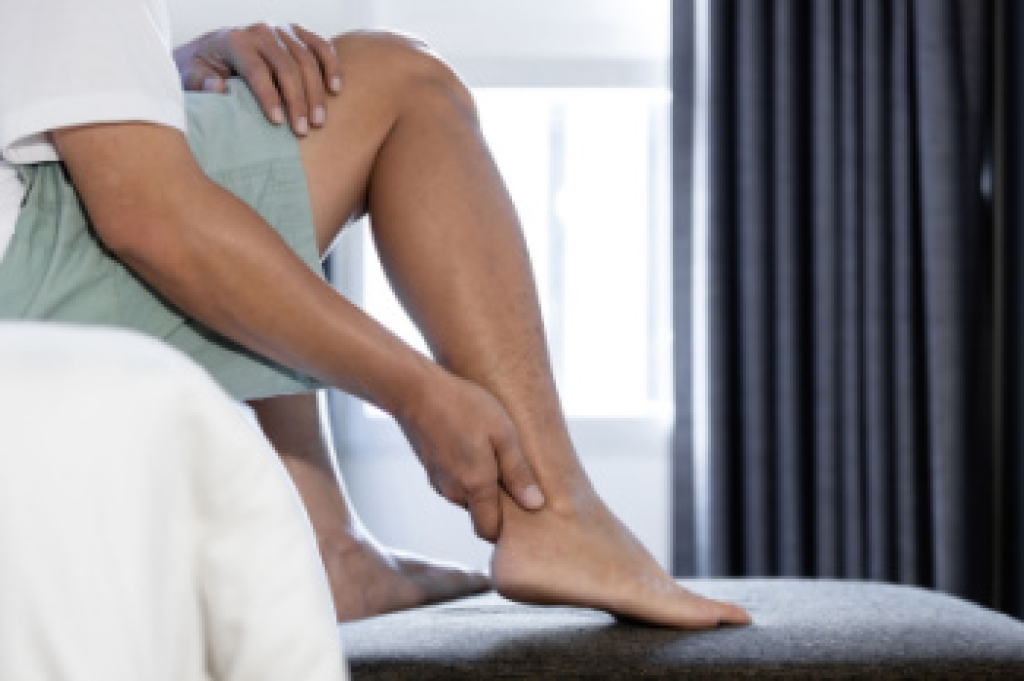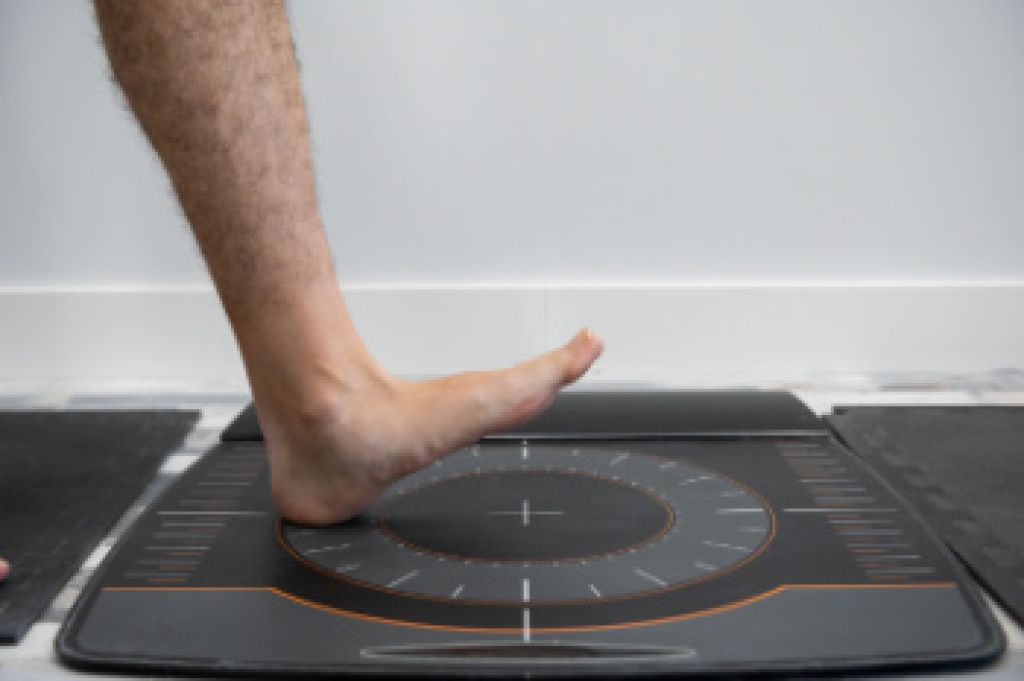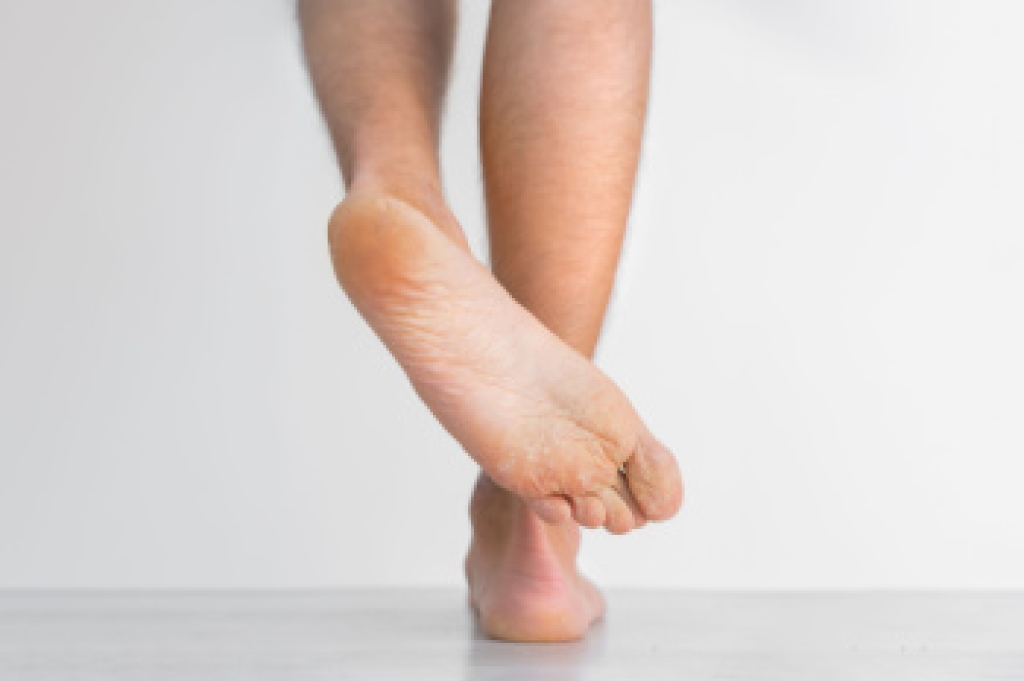Blog
Blog
Why Certain Heel and Foot Tendon Injuries Need Different Care

Pain along the back of the heel or through the foot is often blamed on a single tendon problem, but there are important differences that affect treatment. One condition commonly involves short-term irritation of a tendon, such as the Achilles tendon, often triggered by a sudden increase in walking, running, or standing. This type of injury is linked to inflammation and may improve with rest and activity changes. Another condition develops gradually and reflects long-standing wear within the tendon fibers themselves. In this situation, the tissue becomes weaker and less flexible, especially in the Achilles tendon or tendons supporting the arch. Treating both problems the same way can slow healing and prolong discomfort. Identifying which process is present helps guide appropriate care and recovery strategies. If heel or foot tendon pain persists, it is suggested that you see a podiatrist for a full exam and appropriate treatment.
Achilles tendon injuries need immediate attention to avoid future complications. If you have any concerns, contact Stephanie Tine, DPM of Flamingo Foot and Ankle. Our doctor can provide the care you need to keep you pain-free and on your feet.
What Is the Achilles Tendon?
The Achilles tendon is a tendon that connects the lower leg muscles and calf to the heel of the foot. It is the strongest tendon in the human body and is essential for making movement possible. Because this tendon is such an integral part of the body, any injuries to it can create immense difficulties and should immediately be presented to a doctor.
What Are the Symptoms of an Achilles Tendon Injury?
There are various types of injuries that can affect the Achilles tendon. The two most common injuries are Achilles tendinitis and ruptures of the tendon.
Achilles Tendinitis Symptoms
- Inflammation
- Dull to severe pain
- Increased blood flow to the tendon
- Thickening of the tendon
Rupture Symptoms
- Extreme pain and swelling in the foot
- Total immobility
Treatment and Prevention
Achilles tendon injuries are diagnosed by a thorough physical evaluation, which can include an MRI. Treatment involves rest, physical therapy, and in some cases, surgery. However, various preventative measures can be taken to avoid these injuries, such as:
- Thorough stretching of the tendon before and after exercise
- Strengthening exercises like calf raises, squats, leg curls, leg extensions, leg raises, lunges, and leg presses
If you have any questions please feel free to contact our office located in Fort Lauderdale, FL . We offer the newest diagnostic tools and technology to treat your foot and ankle needs.
The Remarkable Mechanics Beneath Every Step

The human foot is an intricate structure made of 26 bones working together to absorb shock, adapt to uneven surfaces, and create powerful movement, even for dancers who demand precision and balance. When foot mechanics are disrupted, symptoms that may develop include aching pain, fatigue, or instability that travels through the feet, ankles, knees, and even hips. Common signs include changes in posture, uneven shoe wear, swelling, soreness, or burning during activity. Poor mechanics can be caused by genetics, injury, repetitive stress, improper footwear, or the intense demands placed on the feet through sports or dance. The foot may look flattened, overly arched, or misaligned, and it can feel strained, tired, or painful with prolonged standing or movement. A podiatrist evaluates foot mechanics through gait analysis, physical examination, and imaging to identify the source of imbalance. Treatment often begins with education, supportive footwear, and custom orthotics, progressing to strengthening exercises or corrective options to restore efficient movement. If you have foot mechanics problems, it is suggested that you make an appointment with a podiatrist.
If you have any concerns about your feet, contact Stephanie Tine, DPM from Flamingo Foot and Ankle. Our doctor can provide the care you need to keep you pain-free and on your feet.
Biomechanics in Podiatry
Podiatric biomechanics is a particular sector of specialty podiatry with licensed practitioners who are trained to diagnose and treat conditions affecting the foot, ankle and lower leg. Biomechanics deals with the forces that act against the body, causing an interference with the biological structures. It focuses on the movement of the ankle, the foot and the forces that interact with them.
A History of Biomechanics
- Biomechanics dates back to the BC era in Egypt where evidence of professional foot care has been recorded.
- In 1974, biomechanics gained a higher profile from the studies of Merton Root, who claimed that by changing or controlling the forces between the ankle and the foot, corrections or conditions could be implemented to gain strength and coordination in the area.
Modern technological improvements are based on past theories and therapeutic processes that provide a better understanding of podiatric concepts for biomechanics. Computers can provide accurate information about the forces and patterns of the feet and lower legs.
Understanding biomechanics of the feet can help improve and eliminate pain, stopping further stress to the foot.
If you have any questions please feel free to contact our office located in Fort Lauderdale, FL . We offer the newest diagnostic and treatment technologies for all your foot and ankle needs.
Pickleball and Ankle Pain

Pickleball is a fast-paced sport that places repeated stress on the ankles through quick direction changes, sudden stops, and lateral movements. Hurt ankles often result from ligament strain, overuse, or improper foot positioning during play. Risk factors include inadequate warm-up, poor balance, uneven court surfaces, and wearing shoes without proper support or traction. Previous ankle injuries and weak stabilizing muscles can also increase the chance of pain or sprain. A podiatrist can assess ankle stability, identify biomechanical issues, recommend supportive footwear or custom orthotics, and create a treatment plan to reduce inflammation and promote healing. If ankle pain is limiting your pickleball performance or daily activity, it is suggested that you consult a podiatrist to restore strength, prevent future injury, and keep you confidently on the court.
Ankle pain can have many different causes and the pain may potentially be serious. If you have ankle pain, consult with Stephanie Tine, DPM from Flamingo Foot and Ankle. Our doctor will assess your condition and provide you with quality foot and ankle treatment.
Ankle pain is any condition that causes pain in the ankle. Due to the fact that the ankle consists of tendons, muscles, bones, and ligaments, ankle pain can come from a number of different conditions.
Causes
The most common causes of ankle pain include:
- Types of arthritis (rheumatoid, osteoarthritis, and gout)
- Ankle sprains
- Broken ankles
- Achilles tendinitis
- Achilles tendon rupture
- Stress fractures
- Tarsal tunnel syndrome
- Plantar fasciitis
Symptoms
Symptoms of ankle injury vary based upon the condition. Pain may include general pain and discomfort, swelling, aching, redness, bruising, burning or stabbing sensations, and/or loss of sensation.
Diagnosis
Due to the wide variety of potential causes of ankle pain, podiatrists will utilize a number of different methods to properly diagnose ankle pain. This can include asking for personal and family medical histories and of any recent injuries. Further diagnosis may include sensation tests, a physical examination, and potentially x-rays or other imaging tests.
Treatment
Just as the range of causes varies widely, so do treatments. Some more common treatments are rest, ice packs, keeping pressure off the foot, orthotics and braces, medication for inflammation and pain, and surgery.
If you have any questions please feel free to contact our office located in Fort Lauderdale, FL . We offer the newest diagnostic tools and technology to treat your foot and ankle needs.
Athlete’s Foot and How It Affects Foot Health

Athlete’s foot is a fungal infection that commonly affects the skin between the toes and the soles of the feet. Unlike ordinary dry skin, athlete’s foot is contagious and can cause itching, burning, redness, cracking, peeling, and blisters. The infection often develops in warm, moist environments such as shoes, locker rooms, or near swimming pools. Causes include exposure to the fungus, poor foot hygiene, sweaty feet, and wearing tight or non-breathable footwear. A podiatrist can accurately diagnose athlete’s foot, differentiate it from dry skin or other skin conditions, and recommend antifungal treatments, proper foot care, and preventive measures. If you notice persistent itching, redness, or peeling between your toes, it is suggested that you schedule an appointment with a podiatrist for effective relief and treatment solutions.
Athlete’s foot is an inconvenient condition that can be easily reduced with the proper treatment. If you have any concerns about your feet and ankles, contact Stephanie Tine, DPM from Flamingo Foot and Ankle. Our doctor will treat your foot and ankle needs.
Athlete’s Foot: The Sole Story
Athlete's foot, also known as tinea pedis, can be an extremely contagious foot infection. It is commonly contracted in public changing areas and bathrooms, dormitory style living quarters, around locker rooms and public swimming pools, or anywhere your feet often come into contact with other people.
Solutions to Combat Athlete’s Foot
- Hydrate your feet by using lotion
- Exfoliate
- Buff off nails
- Use of anti-fungal products
- Examine your feet and visit your doctor if any suspicious blisters or cuts develop
Athlete’s foot can cause many irritating symptoms such as dry and flaking skin, itching, and redness. Some more severe symptoms can include bleeding and cracked skin, intense itching and burning, and even pain when walking. In the worst cases, Athlete’s foot can cause blistering as well. Speak to your podiatrist for a better understanding of the different causes of Athlete’s foot, as well as help in determining which treatment options are best for you.
If you have any questions please feel free to contact our office located in Fort Lauderdale, FL . We offer the newest diagnostic and treatment technologies for all your foot and ankle needs.
Blog Archives
- 2026
- 2025
- 2024
- 2023
- 2022
